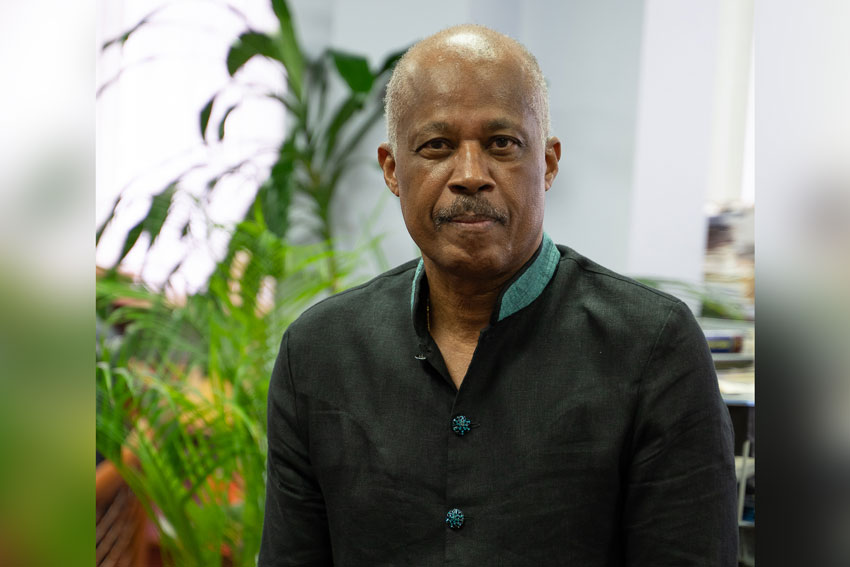The highest governing body of The University of the West Indies (The UWI), the University Council, held its annual business meeting on Friday, April 26. During his opening remarks to the Council, Vice-Chancellor, Professor Sir Hilary Beckles declared, “The University of the West Indies has been enormously successful, given its remit and mandate against the colonial background in which it has emerged.” Contextualising its projection into the 21st century, he underscored, “We are now in a position to serve our people even more fundamentally, in terms of their transformation.”
Themed “Future Focused 75 years. Regional Transformation to Global Leadership” the Vice-Chancellor’s report to Council detailed the significant progress made by The UWI during the 2022/2023 academic year, as well as the challenges it faced. Vice-Chancellor Beckles reflected on the University’s 75 years of service and the many activities that took place during the 75th jubilee. He also referenced The UWI’s 70th anniversary as the University had achieved targets set in the first phase of the strategic plan during that 70th year.
Vice-Chancellor Beckles noted that foremost among the successes is the establishment of The UWI as a global, first-class ranked, activist University. Significantly, he said that the University’s leadership, high reputation and performance positioned it globally as a strategic partner on regional and international concerns such as the pursuit of the United Nations’ Sustainable Development Goals (SDGs), reparatory justice, Africa-Caribbean, Asia-Caribbean, Latin America-Caribbean and North America-Caribbean collaborations.
Other highlights of his report to the Council included revenue-earning projects such as a renewed MOU between UWItv and Flow, a US$300,000 Repair consultancy programme funded by Digicel and effected by the Sir Arthur Lewis Institute for Social and Economic Studies, a donation of US$700,000 towards the University’s research and participation in the reparations movement from the Open Society Foundations as well as properties worth US$500,000 from UK philanthropist, the late Bridget Freeman as a reparatory justice initiative.
On the business side, The UWI notably moved its balance sheet from “red to black” through new externally funded projects. Vice-Chancellor Beckles announced that a university-wide target income of US$50 million annually which was established in 2021 is well underway. Among the significant capital inflows was a US$80 million Development Fund to the Five Islands Campus from the Saudi Development Fund. Efforts to improve systemwide efficiency also included a digital transformation programme supported by the Caribbean Development Bank to the tune of US$6 million.
Other strategic advancements mentioned in the Vice-Chancellor’s report were the launch of a regional MSc in Climate Studies led by the St Augustine campus, the introduction of a foreign language policy that will see every student graduate with competency in a foreign language—thus establishing UWI as a multi-lingual university, the creation of the new International School for Development Justice (ISDJ), and UWI Global Campus (formerly Open Campus) brand. The ISDJ, a business school of the Global Campus, will offer online MA and MSc degrees in the 17 UN SDGs. The new entity will be funded by the IDB, and is seeking endorsement from the UN agencies.
The public session of the University Council meeting was broadcast live on UWItv. The agenda for the meeting also included remarks by Chancellor Robert Bermudez who presided over the meeting for the last time as its Chair. His term of office comes to an end this year. Succeeding him is the Most Honourable Dr Dodridge D. Miller, who will begin his chancellorship on August 1, 2024.
Other items covered in the 2022-2023 Vice-Chancellor’s Report included The UWI’s global leadership in research influence and its current rankings, the deepening of its SDG engagement, alignment through strategic partnerships, and the outstanding regional and international contributions of UWI staff, students, and alumni.




